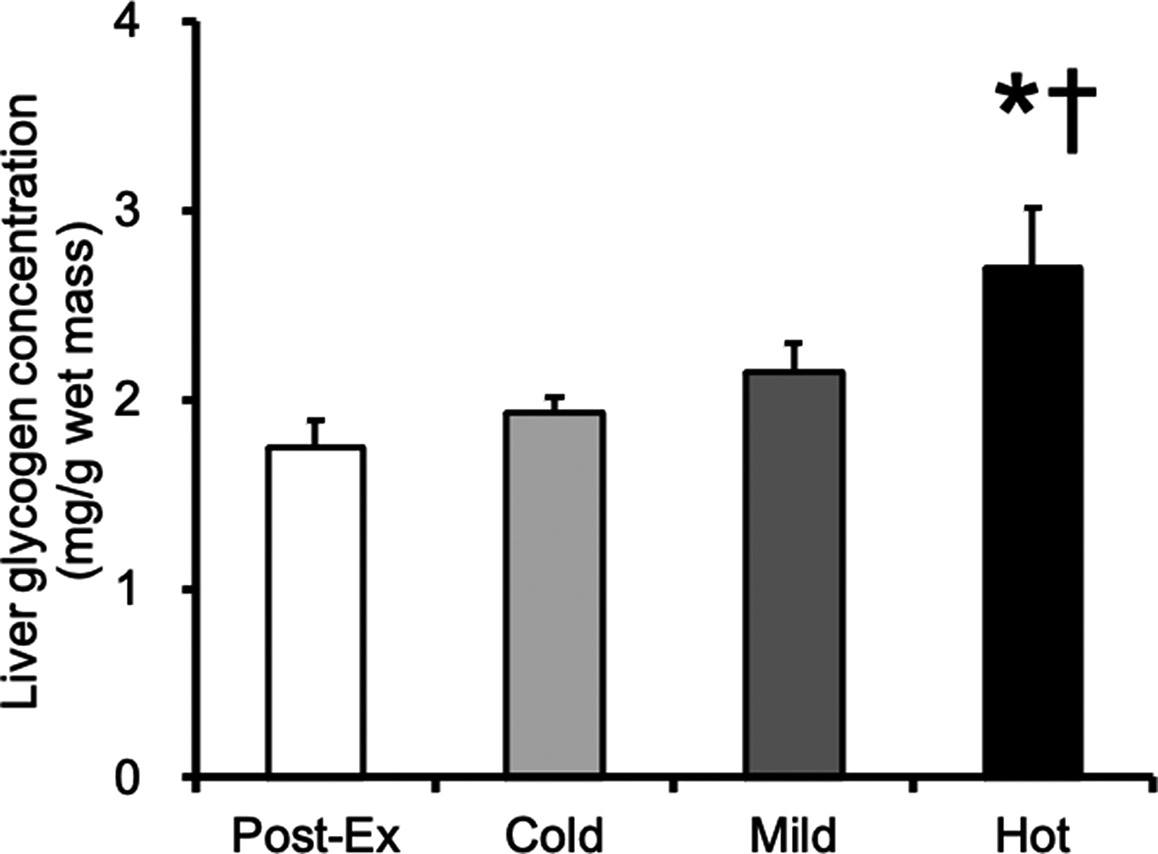Effects of post-exercise glucose ingestion at different solution temperatures on glycogen repletion in mice
Yutaka Matsunaga Physiological Reports, Vol. 9, No. 18, September 2021
Carbohydrate ingestion is essential for glycogen recovery after exercise. Although studies have investigated methods for enhancement of glycogen repletion with regard to nutrients and their amounts, no studies have examined the effect of temperature of the ingested solution on glycogen recovery. Therefore, this study aimed to investigate the effect of the temperature of glucose solution ingested after exercise on glycogen recovery.
Seven-week-old male ICR mice were fasted for 16 h and subjected to treadmill running exercise (20 m/min for 60 min) to decrease glycogen storage. Then, the mice were administered glucose (1.5 mg/g body weight) at three different solution temperatures: 4°C, cold solution group (Cold); 37°C, mild solution group (Mild); and 55°C, hot solution group (Hot).
Our results revealed that blood glucose, plasma insulin, and muscle glycogen concentrations did not differ among the three groups. In contrast, liver glycogen concentration in the Hot group was significantly higher than that in the post-exercise and Cold groups (p < 0.05). Furthermore, portal glucose concentration was significantly higher in the Hot group than in the Cold group (p < 0.01). These observations suggest that postexercise muscle glycogen repletion occurs regardless of glucose solution temperature, and that ingesting hot glucose solution after exercise can be an effective means for liver glycogen repletion compared with cold glucose solution ingestion.














